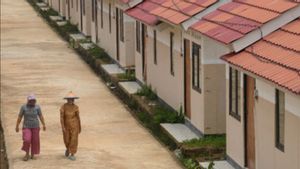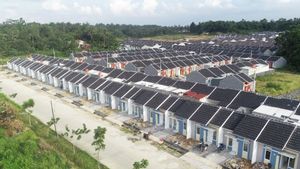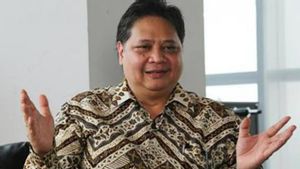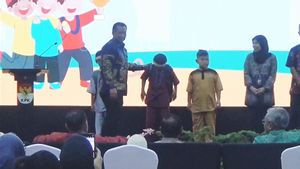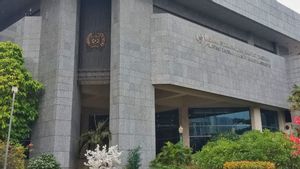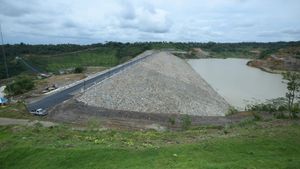JAKARTA - The People's Housing Savings Fund Management Agency (BP Tapera) is currently being discussed in the community regarding the new rules regarding the obligation of Tapera contributions for employees.
For information, President Joko Widodo has set Government Regulation Number 21 of 2024 concerning amendments to Government Regulation (PP) Number 25 of 2020 concerning Public Housing Savings (Tapera).
Article 15 paragraph 1 of PP 21/2024 stipulates that the Amount of Participant Deposits is set at 3 percent of Salaries or Wages for Workers and Income Participants for Independent Workers.
Meanwhile, in paragraph 2, the amount of Participants' Deposit as referred to in paragraph (1) for Workers' Participants is jointly borne by employers of 0.5 percent and workers of 2.5 percent.
This rule generally does not only apply to private workers but also regulates ASN, TNI and Polri who are paid directly by the state.
Meanwhile, Tapera contributions for workers who receive salaries or wages sourced from the state treasury will be directly regulated by the Ministry of Finance through joint coordination with the Ministry of Administrative Reform and Bureaucratic Reform.
Meanwhile, the Tapera contributions from BUMN employees, BUMD, BUMDes, and private employees will be regulated by the Ministry of Manpower. Then, for independent workers, BP Tapera will regulate it directly
Meanwhile, several main things regulated in Government Regulation Number 21 of 2024 regulate the provisions including the authority to regulate Tapera Participation by the relevant Ministry, as well as the separation of sources of funds between funds for Housing Financing Liquidity Facilities (FLPP) from Tapera funds.
BP Tapera was formed based on Law Number 4 of 2016 concerning Public Housing Savings, which is further regulated through Government Regulation Number 25 of 2020 concerning the Implementation of Public Housing Savings, with the aim of collecting and providing sustainable long-term low-cost funds for housing financing in order to meet the needs of decent and affordable houses for participants, as well as having functions to protect the interests of participants.
BP Tapera carries the mandate in the form of distribution of housing financing based on savings based on mutual cooperation.
In addition, participants who are included in the Low-Income Community (MBR) category can get benefits in the form of Home Ownership Loans (KPR), Home Building Loans (KBR), and Home Renovation Loans (KRR) with long tenors of up to 30 years and interest rates remain below the market interest rate.
Performance, BP Tapera reported as of May 17, 2024, the realization of the distribution of financing funds for Housing Financing Liquidity Facilities (FLPP) worth Rp9.22 trillion with 75,947 residential units. As for 2024, BP Tapera targets the FLPP allocation of Rp13.73 trillion with 166,000 units.
SEE ALSO:
Meanwhile, based on the age group, namely the age group that mostly benefits the age of 19-25 years by 32.60 percent, the age of 26-30 years around 29.37 percent, the age of 31-35 years as much as 17.14 percent, the age of 36-40 years around 10.38 percent, and over 40 years of 10.51 percent.
Meanwhile, if you look at the type of work that the recipients who get the most benefits are private workers with a portion of 77.85 percent, entrepreneurs 12.19 percent, civil servants 3.78 percent, TNI/Polri 2 percent, and others 4.17 percent.
In addition, BP Tapera distributed the FLPP through 35 banks according to different allocations. The realization distributed through BTN is the largest at around 51.7 percent, BTN Syariah around 19.45 percent, BRI around 7.45 percent, BNI at 6.06 percent, BJB at 3.13 percent, Bank Mandiri at 2.87 percent, BJB Syariah at 1.6 percent and Bank Sumsel babel at around 1.53 percent.
On the other hand, at least 27 banks are still below 1 percent for FLPP realization according to their respective allocations.
The English, Chinese, Japanese, Arabic, and French versions are automatically generated by the AI. So there may still be inaccuracies in translating, please always see Indonesian as our main language. (system supported by DigitalSiber.id)



